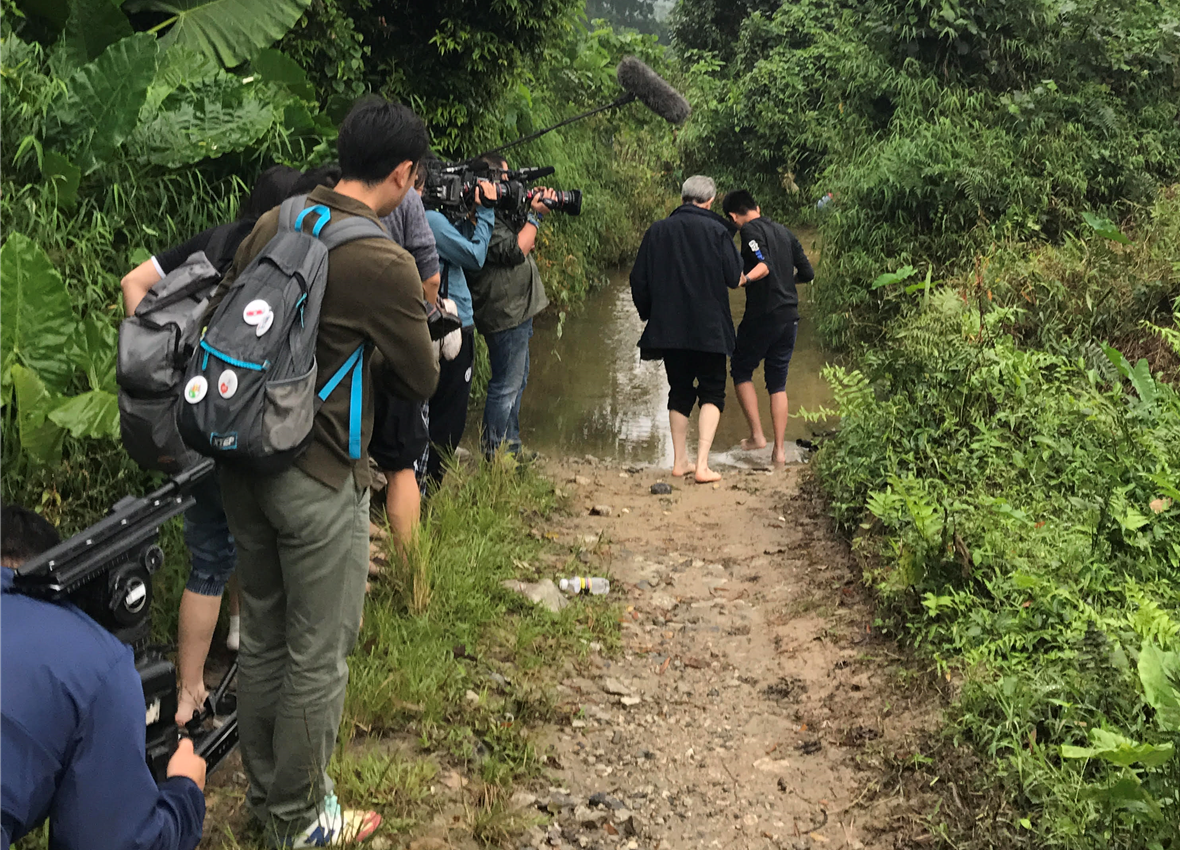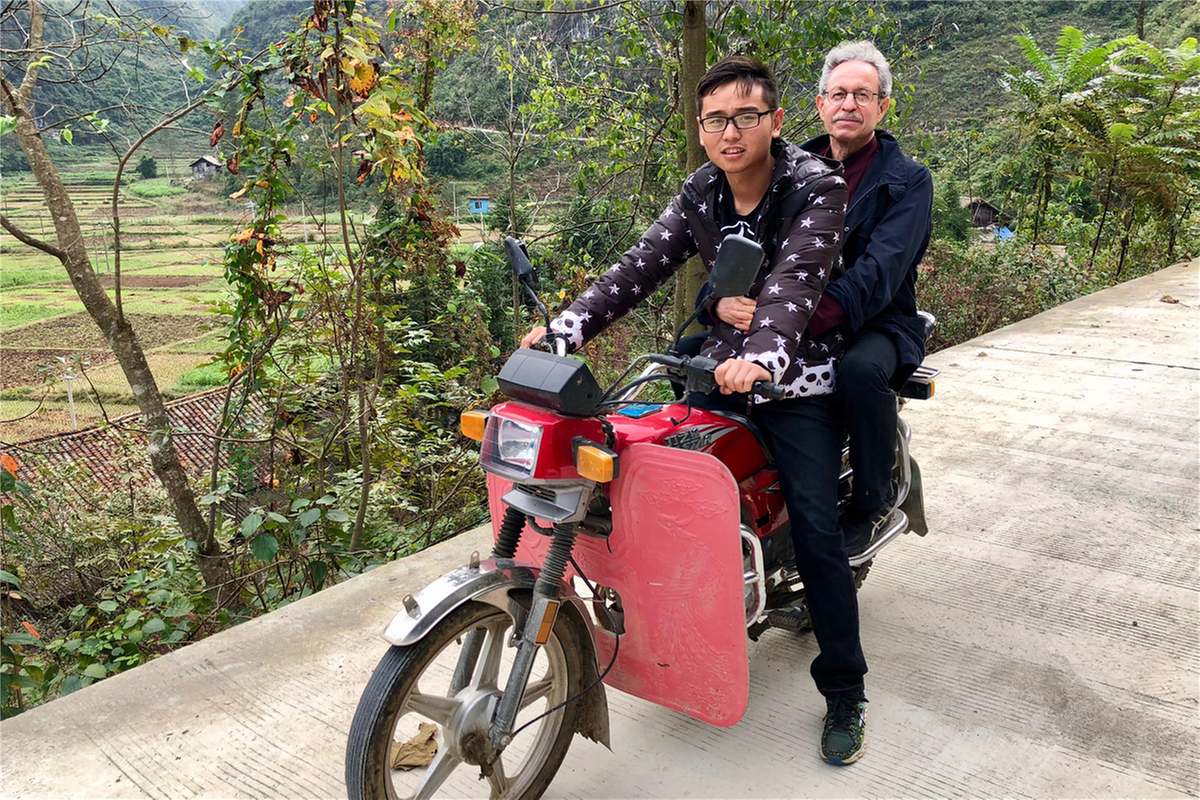Poverty fight grounded in success


"I met one official, for example; he had worked in a provincial capital, in water resources, as maybe a deputy division head. He went to this village where he focused on building a sewage and water system for that village of some 200 families or so, most of whom were poor. He took the task as a matter of not just a goal to achieve, but also as a matter of pride, that he was going to improve their lives and he was going to make this happen under his watch," he said. "These assignments became a badge of honor and a mechanism for career advancement. As noted, these administrative behavioral structures motivate officials to work toward objectives set by the Chinese government. As such, to understand how it works in China may be helpful for other countries, other cultures, so they may discern how to adapt China's poverty alleviation system to their own conditions and cultures."
Kuhn said his experience on the ground "led to insights about how China's extraordinary poverty-alleviation program actually works".
"Although poverty is being fought the world over, there is nothing anywhere like China's relocation of whole villages on a massive, national scale-moving people from remote rural areas to cities and suburban areas, providing homes and jobs, giving them a real chance at a better life," he said.
Kuhn cited one trip to Huishui county in Guizhou province, where whole villages were being relocated from remote mountain hamlets to a new community 70 km away.
"I learned that housing is free for villagers who relocate here. A family of four receives up to 80 square meters of living space, 20 per person. The government also covers all basic amenities, including sofas, beds, kitchenware, and TVs," he said.
"But how can these rural men, who were farmers, learn new, non-farming jobs? I joined a cooking class and got to know one of the former farmers, who was learning to be a chef. I spent time with three generations of his family and several of his friends. Almost everyone was appreciative of their new lives," Kuhn said.
"But not everyone," Kuhn added; "that would be unrealistic. One recently relocated villager told me that the government misrepresented how much income he and his family would get, but it was too late to return to the village because their homes had been demolished as soon as they agreed to be relocated."
"Moreover, not everyone from the villages agrees to move to the new communities. After all, the farms have been their lives for generations. I traveled to Daijing village to meet the Party secretary. His job was to convince the few remaining villagers to relocate. It is policy that neither he nor the government can force people to relocate."
Kuhn stressed the importance of confronting corruption in poverty alleviation work.
"In such a massive country, with such large flows of funds, and with officials' careers on the line, there is risk of abuse and manipulation. While cheating and stealing in poverty alleviation are not unexpected, it is especially unseemly," he said.
"With career stakes high and funding vast, cheating and stealing are no surprise. Of the 122,100 cases of corruption in China in 2017, 48,700-more than one-third-related to poverty alleviation work," Kuhn said.

"I applaud the government in releasing these unflattering statistics! China will not allow falsifying data, or misappropriating funds, to undermine its poverty alleviation goals," he said.
Another impressive feature of poverty alleviation was the system put in place to stem fraud, called "third-party evaluation", Kuhn said.
"The governing idea is that since the independent evaluators would be coming from completely different regions, they would not likely know any of the officials whom they would be evaluating and thus not be swayed by personal relationships.
"The task is to evaluate both the successes and the challenges of the poverty alleviation process-and to assess how officials were doing their jobs," he said.
"To ensure that the local officials do not prepare for inspection visits, the evaluation team decides where they will go only at the last minute, often the same morning of the inspection.
"When officials are pressured to meet their firm objectives in a compressed period of time, some may cut corners or fudge numbers," Kuhn said.
"I commend the State Council Leading Group Office of Poverty Alleviation and Development for its independent checking and inspecting, avowing that if there is any false reports or fraud, officials will be held accountable and dealt with seriously, so that the results of poverty alleviation can stand the test of history and the people. The greater the transparency of government, the greater the confidence in government," he said.
"Between 2015 and 2019, all across China, almost 3 million Party officials were working on the front lines of rural poverty alleviation (that's cumulative-some 750,000 at any given time). Officials know that their careers prosper or falter based on their poverty-alleviation results."
- China's CR450: A new era of high-speed rail at 400 km/h
- TAN SUO SAN HAO to pioneer future of deep-sea exploration
- Xi's discourses on Chinese modernization published in Japanese
- Officials summoned over alleged garbage bin food served to students
- Caring hearts help to enhance quality special education
- Xi sends condolences to South Korean acting president over plane crash




































